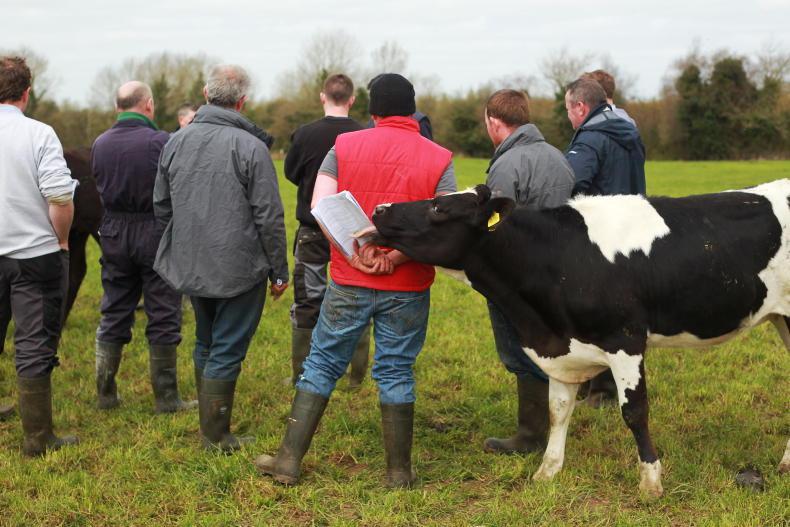There has been no sign of any positive news on the return of the Knowledge Transfer group scheme across the beef, dairy, equine, poultry, sheep and tillage enterprises.
The three-year initiative has not featured highly in discussions surrounding the future of critical schemes post-2020 due to the fact that it concluded on 31 July 2019.
The schemes which operated in a discussion group format catered for in excess of 18,600 participants across 1,100 groups in 2019. Table 1 details the breakdown in participation across livestock and tillage enterprises and, as can be readily seen, beef farmers were the main beneficiaries followed by dairy and sheep farmers.
In year three of the scheme, farmers participating received €11.41m in payments. This can be broken down to a payment of €750 per participant. There was an allowance for participants with dual enterprises to participate in more than one group and in such a situation there was a reduced payment rate of 50% for the second group.
Income stream
The KT group schemes were also an important income stream for group facilitators and veterinary practitioners. Each facilitator of a group was paid €500 per applicant in a group for each year a group completed, with 460 advisers registered as facilitating groups in 2019. The total payment made to group facilitators was recorded at €7.87m in 2019.
Farmers had to avail of the services of an approved veterinary practitioner to complete an animal health plan, with payment for this negotiated between a farmer and their vet and paid from the €750 sum farmers received.
Total fund
The total fund designated for the scheme at the outset was €100m to cover 27,000 applicants across the different enterprises. The level of participation hit two-thirds of its target, with many established groups steering clear due to criteria on group size, which they deemed too restrictive.
A knowledge transfer scheme for forestry owners was launched in 2018 and this annual scheme recorded participation from 614 forest owners across 35 groups in 2019.
Read more
Budget 2021: everything farmers need to know
Budget 2021: REPS scheme one step closer
‘Consanguinity renewal an important commitment to young farmers’
There has been no sign of any positive news on the return of the Knowledge Transfer group scheme across the beef, dairy, equine, poultry, sheep and tillage enterprises.
The three-year initiative has not featured highly in discussions surrounding the future of critical schemes post-2020 due to the fact that it concluded on 31 July 2019.
The schemes which operated in a discussion group format catered for in excess of 18,600 participants across 1,100 groups in 2019. Table 1 details the breakdown in participation across livestock and tillage enterprises and, as can be readily seen, beef farmers were the main beneficiaries followed by dairy and sheep farmers.
In year three of the scheme, farmers participating received €11.41m in payments. This can be broken down to a payment of €750 per participant. There was an allowance for participants with dual enterprises to participate in more than one group and in such a situation there was a reduced payment rate of 50% for the second group.
Income stream
The KT group schemes were also an important income stream for group facilitators and veterinary practitioners. Each facilitator of a group was paid €500 per applicant in a group for each year a group completed, with 460 advisers registered as facilitating groups in 2019. The total payment made to group facilitators was recorded at €7.87m in 2019.
Farmers had to avail of the services of an approved veterinary practitioner to complete an animal health plan, with payment for this negotiated between a farmer and their vet and paid from the €750 sum farmers received.
Total fund
The total fund designated for the scheme at the outset was €100m to cover 27,000 applicants across the different enterprises. The level of participation hit two-thirds of its target, with many established groups steering clear due to criteria on group size, which they deemed too restrictive.
A knowledge transfer scheme for forestry owners was launched in 2018 and this annual scheme recorded participation from 614 forest owners across 35 groups in 2019.
Read more
Budget 2021: everything farmers need to know
Budget 2021: REPS scheme one step closer
‘Consanguinity renewal an important commitment to young farmers’






 This is a subscriber-only article
This is a subscriber-only article










SHARING OPTIONS: